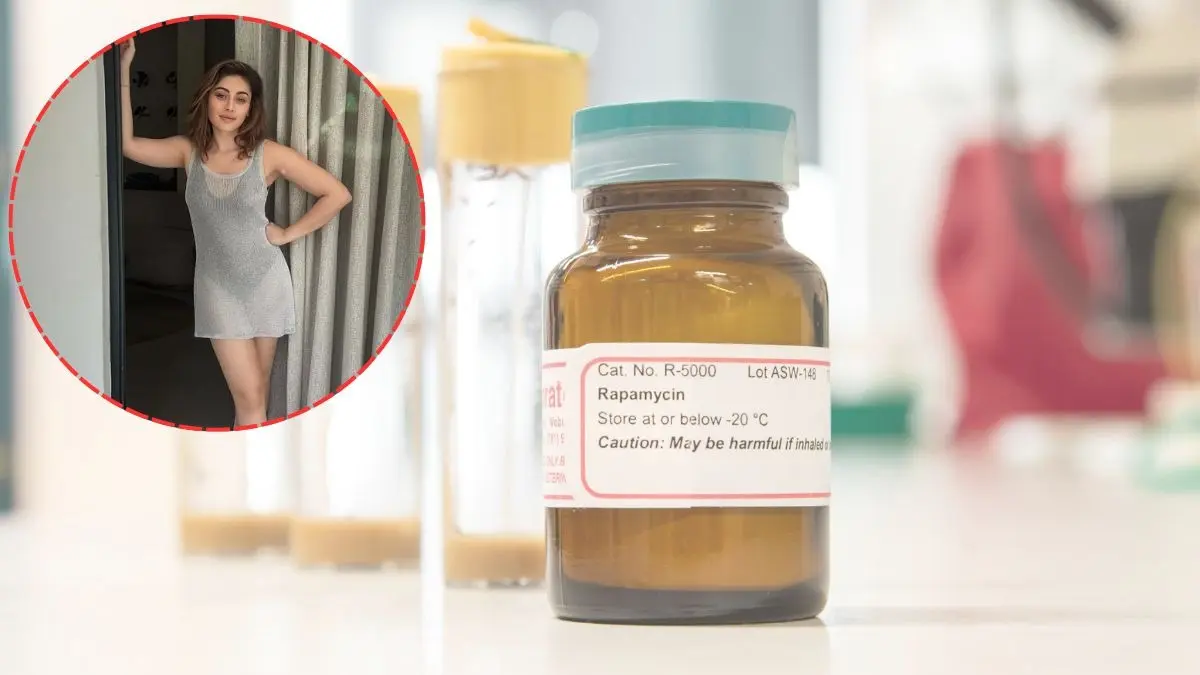Updated 29 June 2025 at 10:40 IST
What Are Anti Ageing Medicines Purported To Have Triggered Shefali Jariwala's Heart Attack?
Shefali Jariwala breathed her last at the age of 42 on June 27. As per various media reports, she is suspected to have suffered a heart attack while being on anti-ageing medication.
- Health News
- 4 min read

Shefali Jariwala died at the age of 42 on June 27. Her sudden demise came as a shock to her fans, friends and well-wishers. As per reports, the actress, best known for her appearance in the music video Kaanta Laga, was rushed to a hospital in Mumbai, where she was pronounced dead on arrival. Her mortal remains were sent to the Cooper Hospital for postmortem. While the doctors have not yet given clarity on the cause of her death, any foul play has been ruled out. Some media reports suggest that the actress was taking anti-ageing medicines for the last 7-8 years, which might have impacted her cardiac health. What are anti-ageing medicines, and do they help reclaim ‘youth’? Find out
What does ageing mean?

The term ageing is self-explanatory and refers to one's increasing age. However, the process has a significant impact on the overall health of one's body. NIH describes ageing as ‘a natural phenomenon caused by the gradual deterioration of biological and physiological functions as a person ages’. Even Science admits that the process of ageing is natural and irreversible. With increasing age, the body's ability to regenerate, self-heal, and maintain its immunity to external dangers deteriorates. This leads to a person being more susceptible to diseases and disorders.
What is anti-ageing?
As mentioned previosuly, ageing is a natural and irreversible process; therefore, anti-ageing does not mean that one's youth can last longer. This branch of medical science is evolving. Anti-ageing techniques and medicines are developed to treat age-related illnesses at bay and extend the healthy lifespan of humans. As per NIH, “Anti-ageing, which is generally used as the opposite concept of ageing, can be defined as a kind of science used to prolong the lifespan and delay ageing while maintaining the physical, functional, and aesthetic beauty of the body."
What do anti-ageing medicines do?

As per medical journals, anti-ageing medicines are a ‘part of medical and healthcare, that applies advanced science and medical technology for the early detection, prevention, treatment, and reversal of age-related dysfunctions, disorders, and diseases’. Essentially, anti-ageing drugs are preventive medicines. Such medical science first focuses on the causes of ageing and then aims to decrease the process. Scientific journals have listed gene mutation, decreased cellular function, free radical oxidation, immunological deterioration, and decreased hormone levels as the reasons for ageing. The anti-ageing medicines work on cellular and molecular levels to combat oxidative stress, DNA damage, inflammation, and hormonal imbalances—all of which contribute to ageing.
Advertisement
What are the popular anti-ageing therapies?
Apart from oral medicines taken to increase vitality and youthfulness, there are popular anti-ageing treatments which are usually employed by celebrities and artists in the show business. Some of the therapies are:

1. Hormone Replacement Therapy
One of the major causes of ageing is the declining hormones. The hormones work at their peak capacity during the young years and slow down as one ages. Hormone replacement therapy (HRT) aims to restore the balance of estrogen, testosterone, and human growth hormone. However, the safety and effectiveness of the treatment are still debated.
Advertisement
2. Caloric restriction and intermittent fasting
In certain animal and plant-based tests, caloric restriction and intermittent fasting have been shown to have some effect in extending the lifespan. However, more research is required to prove the benefits of this diet on humans.
3. Telomerase activators
Telomeres are the caps of the chromosomes, which shorten as cells divide with age. Telomerase activators are supplements that potentially ‘slow down the shortening of telomeres and promote cellular health’.
4. Senolytics
This refers to types of drugs that are specifically made to target the cells that stop dividing, leading to age-related diseases. Such medicines are still in the experimental stage.
5. Cosmetic procedures
Aesthetic treatments such as botox, dermal fillers, plastic surgery and laser treatments have been widely used to reduce physical signs of ageing, wrinkles, fine lines and age spots. These processes only target physical signs and not biological procedures.
What are the risks of anti-ageing treatments?
Many anti-ageing therapies, especially newer ones like senolytics or NAD+ boosters, lack conclusive long-term human studies. As per reports, some hormone therapy can increase the risk of cancers, blood clots, and cardiovascular disease if not properly monitored. Moreover, many products that claim to slow down signs of ageing are marketed with exaggerated claims and lack scientific backing.

Some anti-ageing treatments are proven to be detrimental to cardiac health if taken without expert advice for a long time. As per some medical journals, the drugs cause disruption in heart function, blood pressure and trigger arrhythmias. In extreme cases, it can also lead to sudden cardiac arrest.
Published By : Shreya Pandey
Published On: 29 June 2025 at 09:57 IST
